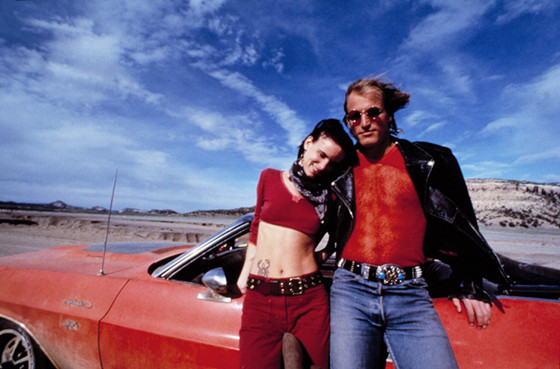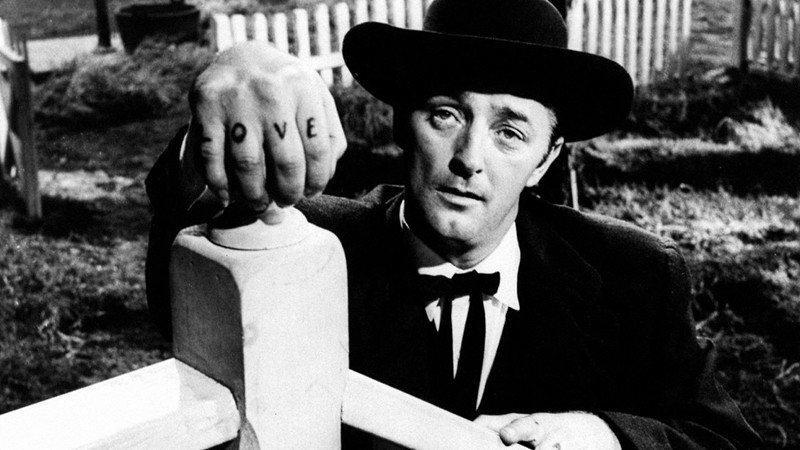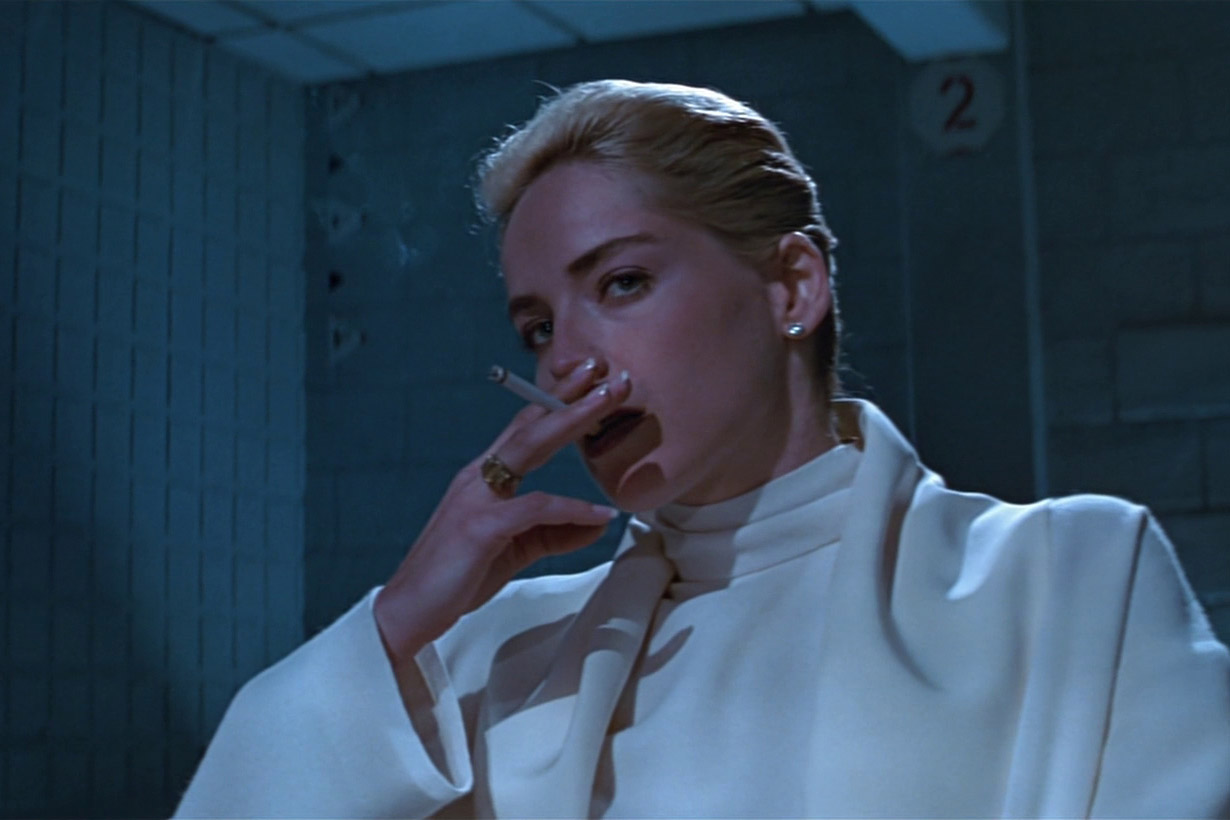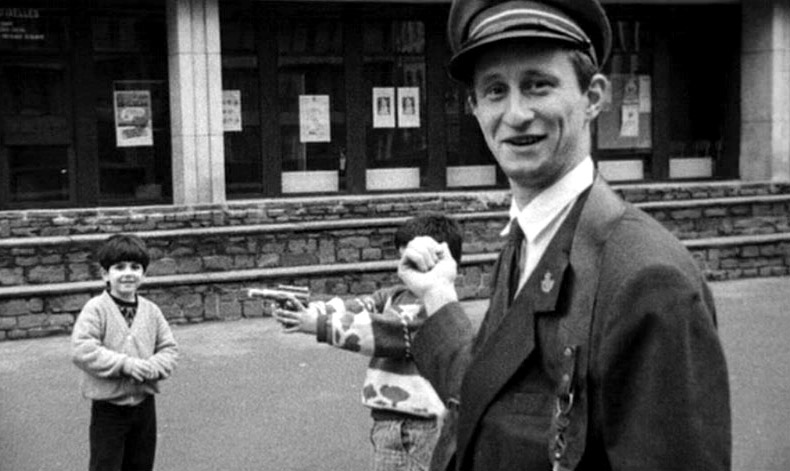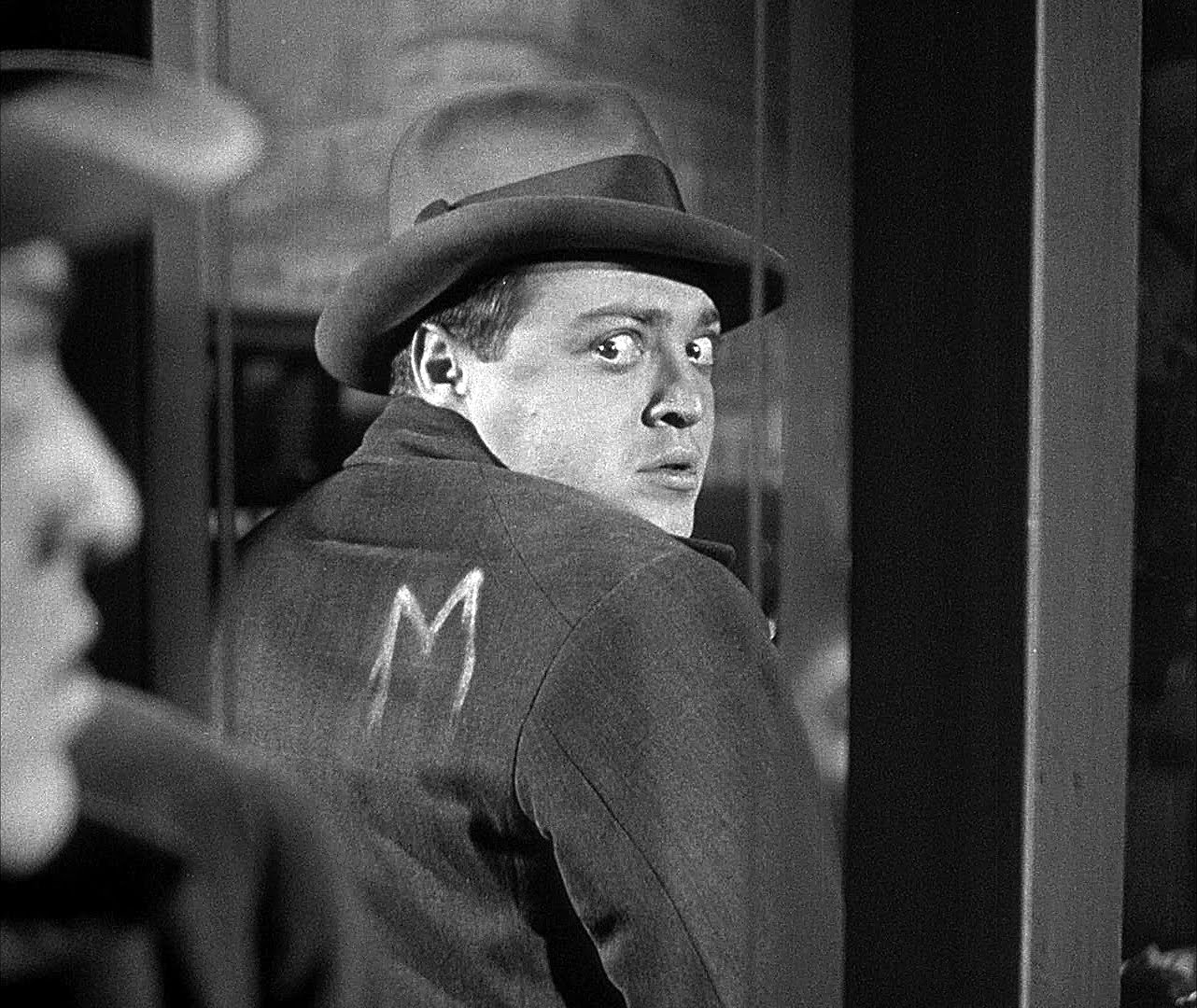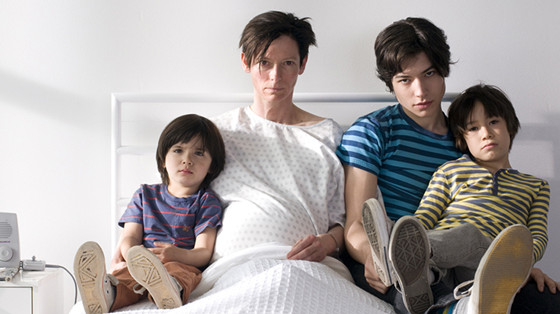23. The Devil’s Rejects (2005)
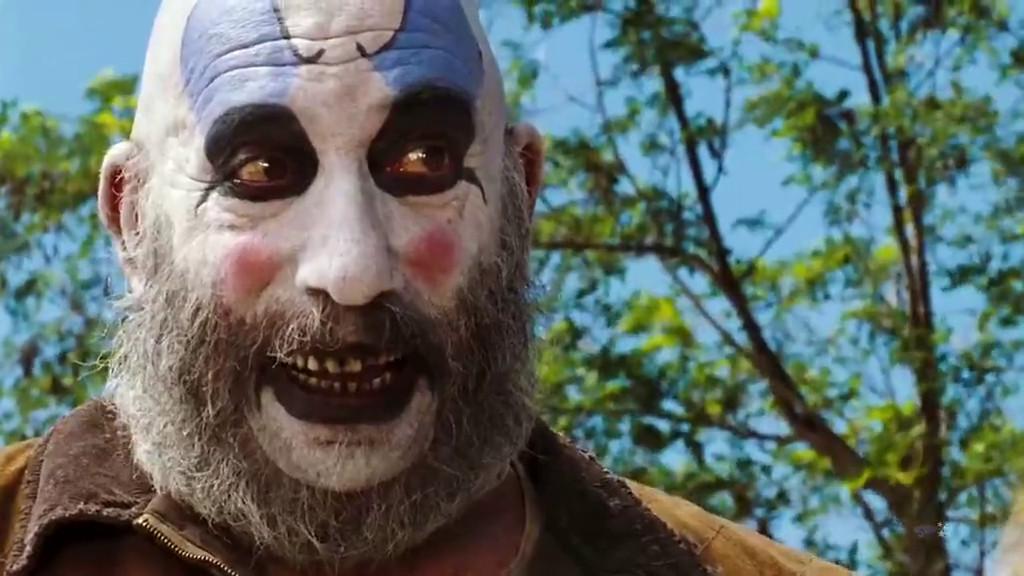
The Psychopaths: Captain Spaulding (Sid Haig), Otis Driftwood (Bill Moseley), and “Baby” Firefly (Sheri Moon Zombie)
In Rob Zombie’s superior follow-up to his disappointing House of 1000 Corpses, a family of serial killers terrorizes the American southwest. There isn’t much more of a plot to it than that, aside from the efforts of a Texas sheriff (William Forsythe) to exact revenge on the murderous gang for killing his brother, but the film still somehow works.
Notably defended by Roger Ebert due to its unmistakable craft and subversive attitude, the film is driven by its three committed lead performances: Haig’s vile Captain Spaulding is as unwholesome as a clown can get, Moseley clearly channels Charles Manson in appearance and demeanor, and the director’s real-life wife, Sheri Moon Zombie, plays Baby as a sex kitten from hell.
More than just mindless sadists, the trio is scary because of the freedom they’re given to make the roles their own, switching from playful and witty to barbaric and pitiless in the blink of an eye.
This is a rough movie, even for jaded horror fans, as the film’s violence is quite extreme (it just squeaked by with an R-rating). It is also, however, Rob Zombie’s best (though that may not be saying much) – a tour de force nightmare of a road movie that is also comical at times and equally brutal in others.
Plus the epic final scene, featuring Lynyrd Skynyrd’s “Free Bird” in its entirety, is just plain exhilarating (unsurprising, given Rob Zombie’s career in heavy metal before turning to filmmaking).
Memorable Psychopathic Quote: “I am the devil, and I am here to do the devil’s work.”
22. Natural Born Killers (1994)
The Psychopaths: Mickey Knox (Woody Harrelson) and Mallory Knox (Juliette Lewis)
Another example of a film about killers working in tandem, Natural Born Killers has been polarizing since its release. Cut due to pressure from the MPAA, banned and its release delayed in other countries, and blamed for various alleged copycat crimes, it tells the story of a young couple who form a bond through murder (much like Terrence Malick’s Badlands, it was likely inspired by the spree killings committed by Charles Starkweather and his girlfriend in the late 1950’s).
It is also a bold satire of the media’s obsession with violence, though the intricacies of this point led to a schism between the originator of the film’s screenplay, Quentin Tarantino, and its director, Oliver Stone.
The film benefits from its two strong lead performances, which dare us to both hate and sympathize with the killers. A flashback revealing Mallory’s childhood abuse by her father (a startlingly repulsive Rodney Dangerfield, of all people) is a prominent example that illuminates, though hardly excuses, her damaged mindset.
The film’s frenetic editing and hyper-stylization make it clear that it’s not meant to be taken at face value, which has led to mixed reactions from critics. Whether viewed as a love story, a crime saga, a ferocious satire, or all of the above, it is certainly a provocative film that deserves to be seen before being discussed.
Memorable Psychopathic Quote: “It’s just murder, man. All God’s creatures do it, some form or another. I mean, you look in the forests, you got species killing other species, our species killing all species including the forests and, we just call it industry, not murder.”
21. The Night of the Hunter (1955)
The Psychopath: Reverend Harry Powell (Robert Mitchum)
The only film ever directed by English actor Charles Laughton, this adaptation of the novel by Davis Grubb gives us one of the most menacing and unrelenting villains of all time.
Playing a serial killer who will stop at nothing to uncover a deceased bank robber’s fortune, Mitchum is downright terrifying. The ease with which he manipulates the robber’s widow (Shelley Winters) – falling back on his “man of God” persona – is as unpleasant to watch as his pursuit of the money’s location, especially as it entrails unashamedly intimidating and threatening her two very young children.
The character’s LOVE/HATE tattoos, referenced in everything from Do the Right Thing to The Simpsons, only add to his monstrous façade. Not only is he a criminal without a conscience, but his use of religion to hide his true nature is particularly indefensible (though also diabolically clever).
Memorable Psychopathic Quote: “Speak, boy, where’s it hid? Speak. Speak, or I’ll cut your throat and leave you to drip like a hog hung up in butchering time.”
20. Basic Instinct (1992)
The Psychopath: Catherine Tramell (Sharon Stone)
Best known for that infamous interrogation scene, Basic Instinct has more going for it than a simple crotch shot. A taut thriller and murder mystery from writer Joe Eszterhas (F.I.S.T., Jagged Edge) and director Paul Verhoeven (RoboCop, Total Recall), it broke new ground in its graphic treatment of sex and violence, and was subsequently the target of protests by gay rights activists angered over its portrayal of lesbians and bisexuals.
Guilty or not, the film boasts a star-making performance by Sharon Stone as crime novelist who’s also the prime suspect in a brutal slaying. Calm and collected on the outside, she exudes both unmistakable intelligence and simmering sexuality.
Whether or not she committed the crime will not be revealed here, though Catherine’s icy personality, effortless charm, and unabashed toying with the detective investigating the case (Michael Douglas) certainly point toward a psychopathic personality. The Oscar-nominated score by Jerry Goldsmith improves the film dramatically, which probably looks even better in retrospect, given its disastrous 2006 sequel.
Memorable Psychopathic Quote: “I’d have to be pretty stupid to write a book about killing and then kill somebody the way I described it in my book. I’d be announcing myself as the killer. I’m not stupid.”
19. Man Bites Dog (1992)
The Psychopath: Ben (Benoît Poelvoorde)
This French-language film from Belgium offers more insight into the mind of a fictional psychopath than most would attempt. A black and white mockumentary, it focuses on a small film crew that follows a serial killer around as he commits and openly discusses his crimes.
Clearly, realism isn’t the intended goal, so the filmmakers (the real ones) wisely choose to give the surreal proceedings a comedic tone, albeit one as dark as a pitch black comedy could possibly have.
Ben is charismatic, articulate, and smart, but it’s impossible to root for him (especially after he smothers a child onscreen). Instead, we look at him like a wild animal to be studied, so alien is his logic and warped his mind. It’s obviously not a film for the average cinemagoer, but those with a morbid sense of humor and an appreciation for dark satire will get a kick out of this obscure European offering.
Much like Natural Born Killers, the film’s main target is the sensation-seeking media that feeds off of violence (the English title refers to the journalistic truth that an unusual event is more likely to be reported than a common one, which can lead to distorted perceptions among the public).
The MPAA was not amused, slapping the film with the prohibitive NC-17 rating for its seemingly callous portrayal of violence. That said, those who seek it out should expect to find the film strikingly different, jaw-dropping, and yes, even brave.
Memorable Psychopathic Quote: “Once I buried two Arabs in a wall over there… Facing Mecca, of course.”
18. M (1931)
The Psychopath: Hans Beckert (Peter Lorre)
The oldest film on this list, M provides an excellent and quite accurate illustration of both a psychopath and a serial killer (especially impressive given that neither term existed at the time). Widely believed to have been inspired by a killer nicknamed “The Vampire of Düsseldorf,” this German film – Fritz Lang’s first sound picture – concerns the efforts of both police and criminals alike to catch a fiendish child murderer.
Roaming the streets while whistling Grieg’s “In the Hall of the Mountain King” (one of the first uses of the leitmotif device in film), Lorre’s killer is deplorable yet almost sympathetic. The scene in which he contorts his face into grotesque expressions in front of a mirror, trying to see what the rest of the world sees in him, underscores that he kills not for passion or profit, but out of compulsion.
While perhaps a difficult idea to comprehend at the time, Lorre’s character expresses himself in a pathetic but passionate monologue at the film’s climax, claiming that he can’t control himself when he feels the urge to commit acts that he knows are evil.
The film hardly excuses him, of course, as the kangaroo court he faces likens him to a mad dog that must be stopped before continuing its rampage, but the mere attempt to understand such a character is commendable. The film shows that though “honor among thieves” is a very real concept, there are some kinds of criminals that not even fellow law-breakers will defend, such is the terrible nature of their crimes.
Memorable Psychopathic Quote: “I can’t help myself! I have no control over this, this evil thing inside of me, the fire, the voices, the torment!”
17. Hard Candy (2005)
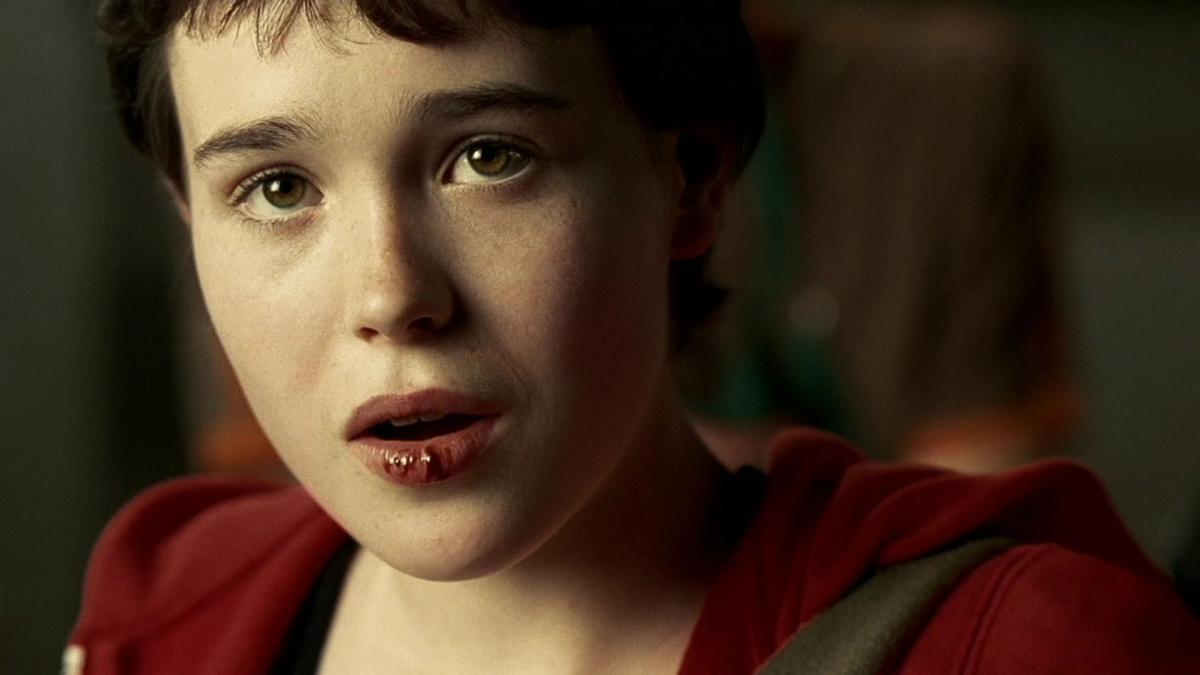
The Psychopath: Hayley Stark (Ellen Page)
Proving that psychopaths come in all shapes and sizes, Hard Candy’s Hayley is a diminutive one for the books. When the 14-year-old allows herself be lured to the home of the adult photographer (Patrick Wilson) she’s been chatting with online, she turns the tables on him, drugging and then interrogating the helpless bastard.
What proceeds during the remainder of the film is not for the faint of heart… It’s one of the tensest, most squirm-inducing battles between two psyches committed to celluloid.
The extent to which Hayley’s supposedly predatory male victim is guilty of her suspicions is kept uncertain, for the most part, but that does little to dilute the uncompromising harshness of Page’s character. Her calculating, self-justified actions will leave viewers with plenty to debate afterwards, as all well-developed psychopathic characters should.
The film’s striking use of color, uncomfortable reliance on close-ups, and superb direction by David Slade and writing by Brian Nelson make it a brainy entry in a genre so often maligned for its lack of originality. One thing’s for sure after watching this intense, claustrophobic suspense-shocker: You’ll definitely never look at Juno the same way again.
Memorable Psychopathic Quote: “I dunno. There’s that whole nature versus nurture question, isn’t it? Was I born a cute, vindictive, little bitch or… did society make me that way? I go back and forth on that…”
16. We Need to Talk About Kevin (2011)
The Psychopath: Kevin Khatchadourian (Ezra Miller)
Though it’s hardly the first movie about a child who’s straight-up rotten to the core (remember Macaulay Culkin in The Good Son, or the arthouse thriller Joshua?), this is arguably the best. While the titular psychopath is not the protagonist – that would be his long-suffering mother, played with unflinching poise by Tilda Swinton – the horrible ripple effects of Kevin’s actions permeate every frame.
Scottish director Lynne Ramsay shoots the film like a surreal waking nightmare, employing unflattering close-ups, unnerving splashes of red in the lighting and scenery to evoke blood, and a dread-inducing dissonant score by Radiohead member Jonny Greenwood. The film makes use of a non-linear narrative, teasing the lead-up to what we know will be a school massacre of some kind, only to blindside us with one final gut-punch of a shock at the end.
Based on the book by Lionel Shriver, who voiced his through approval of the adaptation, the film captures the horror of an inexplicable act of school violence in a way that makes it sadly relevant, especially in the U.S. And while the question of “Why?” lingers over the film, it almost doesn’t matter.
While multiple actors are used to play Kevin at different points in his life, it’s Ezra Miller as the oldest incarnation of the character who truly stands out. The detached, nihilistic teenager exhibits nearly all the hallmark traits Hare warns about, which underscores the film’s most haunting question, referenced in the title: How does one deal with a psychopathic family member, especially if he’s yet to commit any crime and only seems like he one day might…?
Memorable Psychopathic Quote: “I mean it’s got so bad that half the time the people on TV, inside the TV, they’re watching TV. And what are all these people watching, huh? People like me. I mean what are all you doing right now, but watching me? You don’t think they would’ve changed the channel by now if all I did was get an ‘A’ in geometry?”
